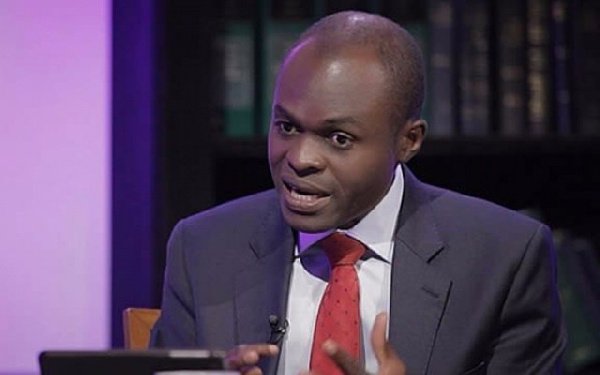Private legal practitioner, Lawyer Martin Kpebu, has taken a swipe at the Office of the Special Prosecutor (OSP) for failing to anticipate a no-show by former Finance Minister Ken Ofori-Atta, describing the inaction as a costly lapse that has led to a loss of over three months of prosecutorial momentum.
Speaking on the matter in an interview on TV3’s New Day, Lawyer Kpebu stressed that although Ofori-Atta was expected to report to the OSP on June 2, the prosecuting body ought to have had a contingency plan in place in case he failed to appear.
“Whilst we agree that he should come on the 2nd of June, we should have had the Plan B, Plan B, Plan B. OSP didn’t use a Plan B. So we’ve lost time. From February 18th to June 2nd, we’ve lost more than three months.” he lamented.
He argued that rather than relying solely on the former minister’s word, the OSP should have pursued parallel options, including taking a statement from him while he was abroad or involving U.S. authorities to gather testimony.
Such steps, Kpebu insists, could have facilitated charges and even a trial in absentia if Ofori-Atta remained unavailable. Beyond procedural criticisms, the outspoken lawyer questioned the sincerity of Ofori-Atta’s health excuse, alleging that the former minister acted in bad faith to buy time and avoid accountability.
However, he lauded the OSP for securing an INTERPOL Red Notice for the ‘fugitive’ former finance minister and credited the office with a pass for that action.
Kpebu referenced Ofori-Atta’s request for an adjournment in February 2025 on the grounds of an upcoming surgery on March 20 and 21, which was later revealed to be merely a biopsy.
“He made a biopsy look like a major surgery. That 20th and 21st March surgery was made out to be very major… But with hindsight, we’ve seen that they were diagnostic surgeries, a biopsy, not some complicated procedure that needs months to recover.” Kpebu said.
According to Kpebu, once it became evident that the March surgery was not as serious as initially claimed, Ofori-Atta had a duty to update the OSP and explore alternative arrangements, including virtual interrogation. But he did not.
“That’s where he destroyed his case. In law, once that didn’t happen, and that’s a material fact, you go back to the law enforcement agency and negotiate something else,” Kpebu explained.
Instead, Ofori-Atta only resurfaced on May 28, just days before his June 2 meeting, with a fresh notice that he would be undergoing another surgery on June 13.
“That is bad faith. People had said it before. Skeptics warned that he wouldn’t show up. And they were right.”Kpebu declared.
Kpebu concluded by calling for a more aggressive and strategic posture by the OSP in handling high-profile cases like this, urging the office not to take the goodwill of public officials at face value.


